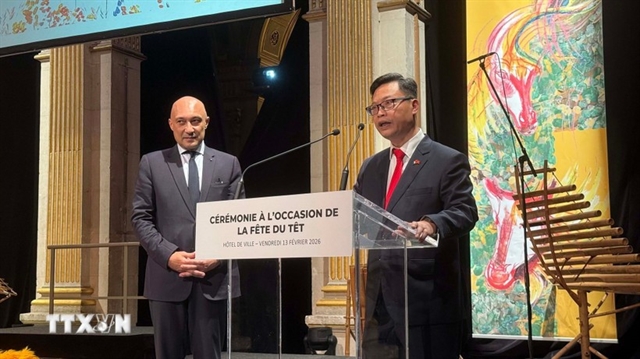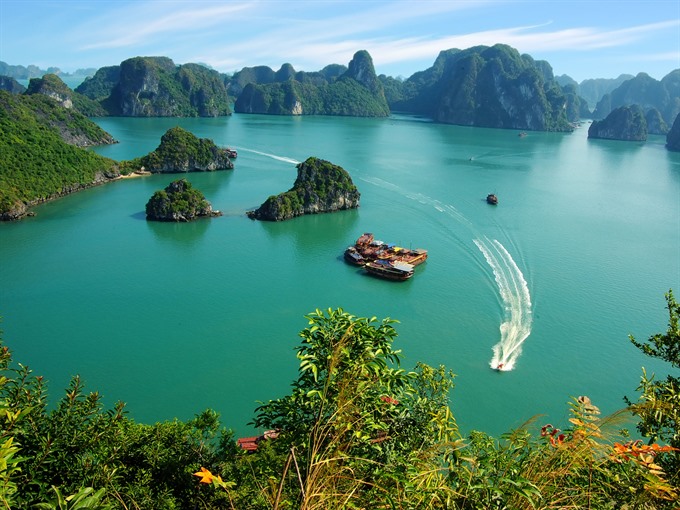 Life & Style
Life & Style

Vietnamese and Chinese tourists can now explore new routes to four destinations across both countries. The routes were inaugurated on Thursday in the northern province of Quảng Ninh’s Móng Cái City.
 |
| Hạ Long Bay, one in four destinations in the new tourism routes that have recently been set up by authorities of Móng Cái and Dongxing cities. The new routes are expected to become popular among tourists and a trademark for the two nations. — Photo apttravel.com |
QUẢNG NINH — Vietnamese and Chinese tourists can now explore new routes to four destinations across both countries. The routes were inaugurated on Thursday in the northern province of Quảng Ninh’s Móng Cái City.
The four destinations include the cities of Hạ Long and Móng Cái in Việt Nam, and Dongxing and Guilin in China. The new routes have been set up by authorities of Móng Cái and Dongxing cities and are expected to contribute in a big way towards increasing tourism in Quảng Ninh and Guangxi provinces.
The launch of the routes also kicked off the Móng Cái tourism year 2017.
Representatives of Móng Cái City’s administration, Quảng Ninh’s tourism department, Guangxi Zhuang Autonomous Region’s tourism development committee and Dongxing and Guilin cities’ authorities all attended the opening ceremony.
Nguyễn Tiến Dũng, Vice Chairman of Móng Cái City’s People Committee, said tourists of both countries can look forward to a variety of unique tourism products.
Local authorities will continue to make great efforts to create favourable conditions for tourists, such as quick customs procedures, development of new routes and tours and better services.
The new routes are expected to become popular among tourists and a trademark for the two nations.
Chinese tourists account for 40 per cent of the international tourists visiting Quảng Ninh Province every year. Combined with last year’s tourism achievements - attracting 1,6 million tourists to Móng Cái City and the introduction of many attractive tourism products like self-driven cars - the exploitation of the border gates in Móng Cái and Dongxing will continue to stimulate the development of border tourism and contribute to the socio-economic development of the regions.
Immediately after the opening ceremony, two groups of 60 Chinese and Vietnamese tourists signed up for the new routes. — VNS




